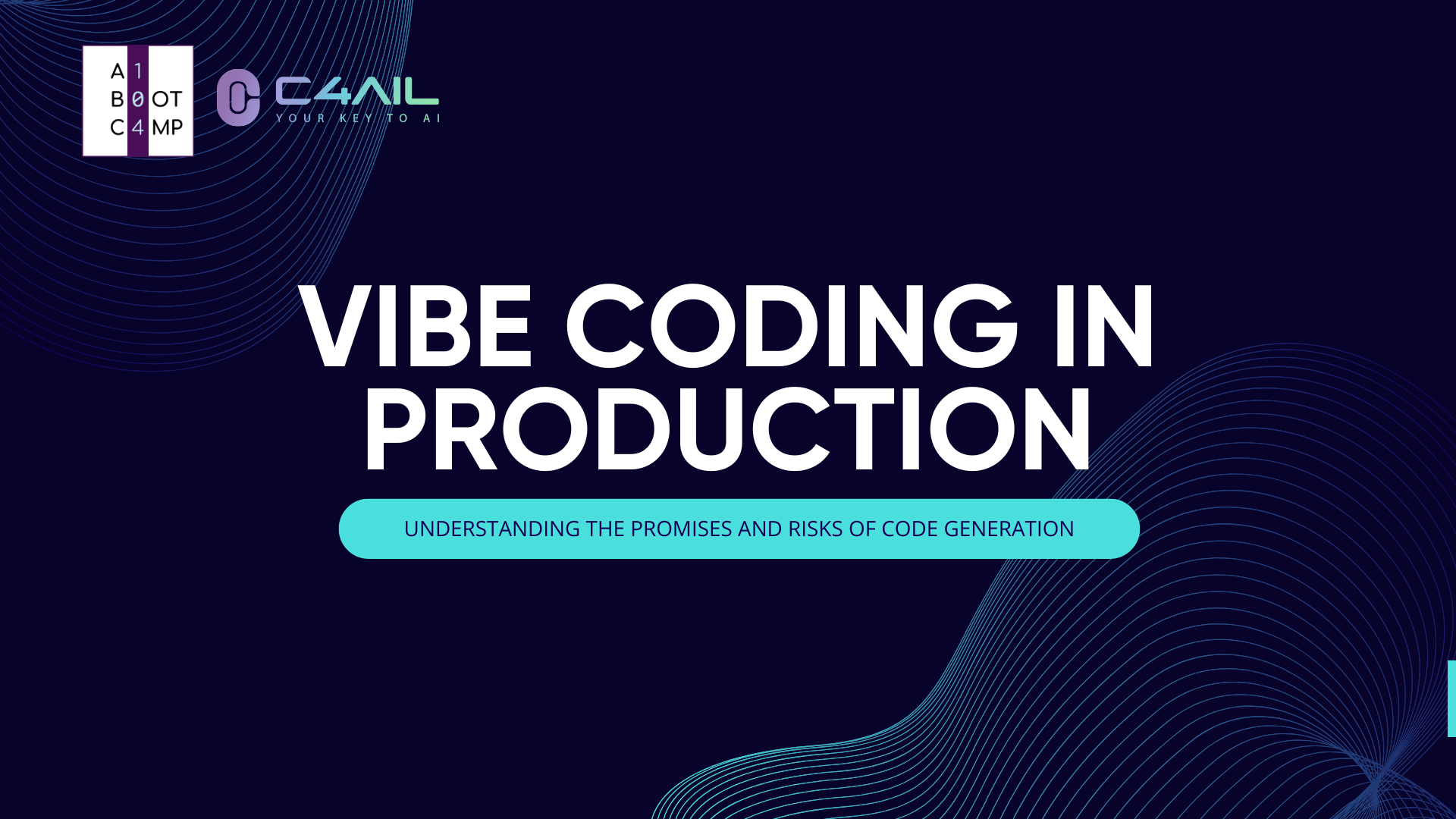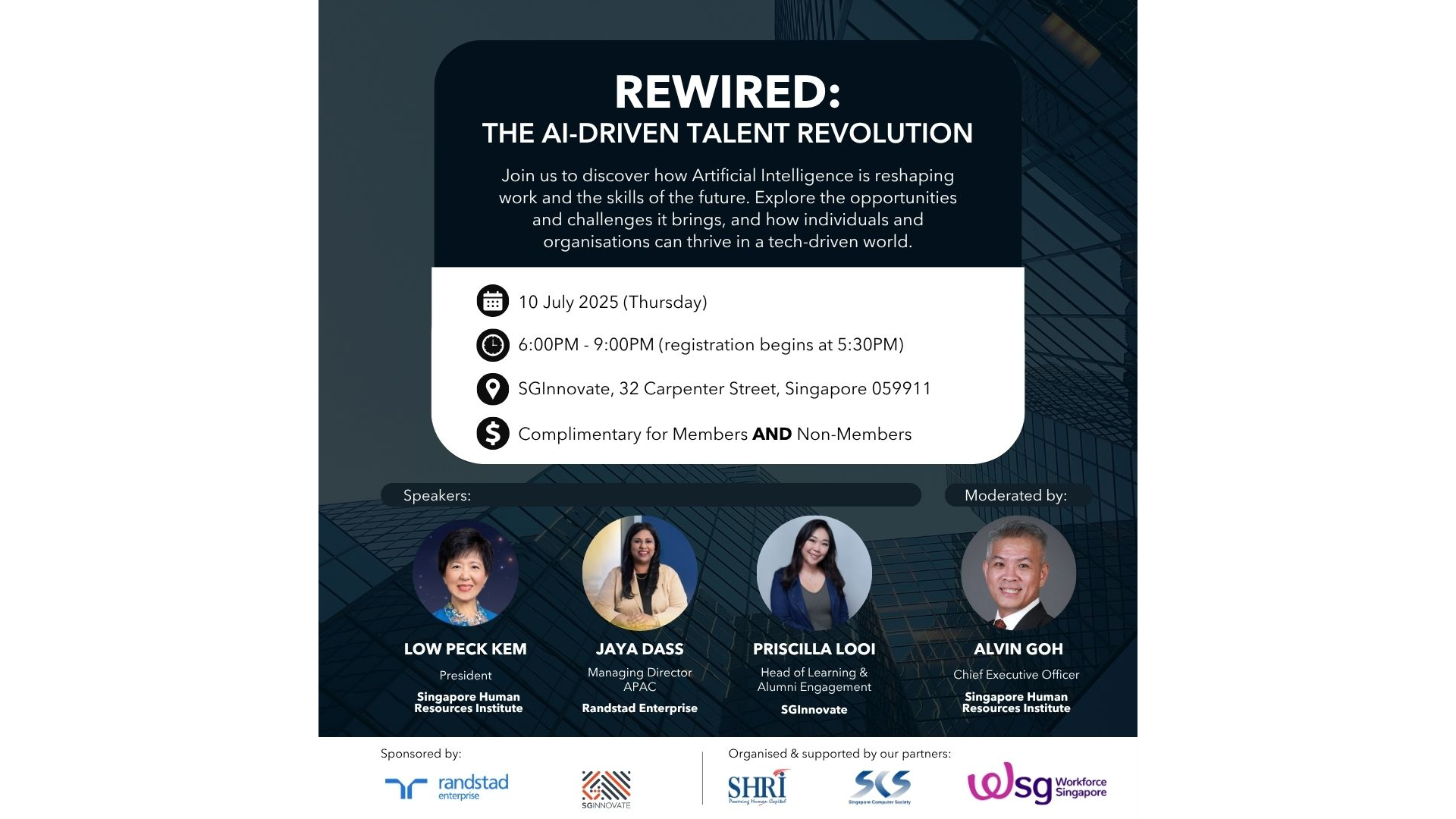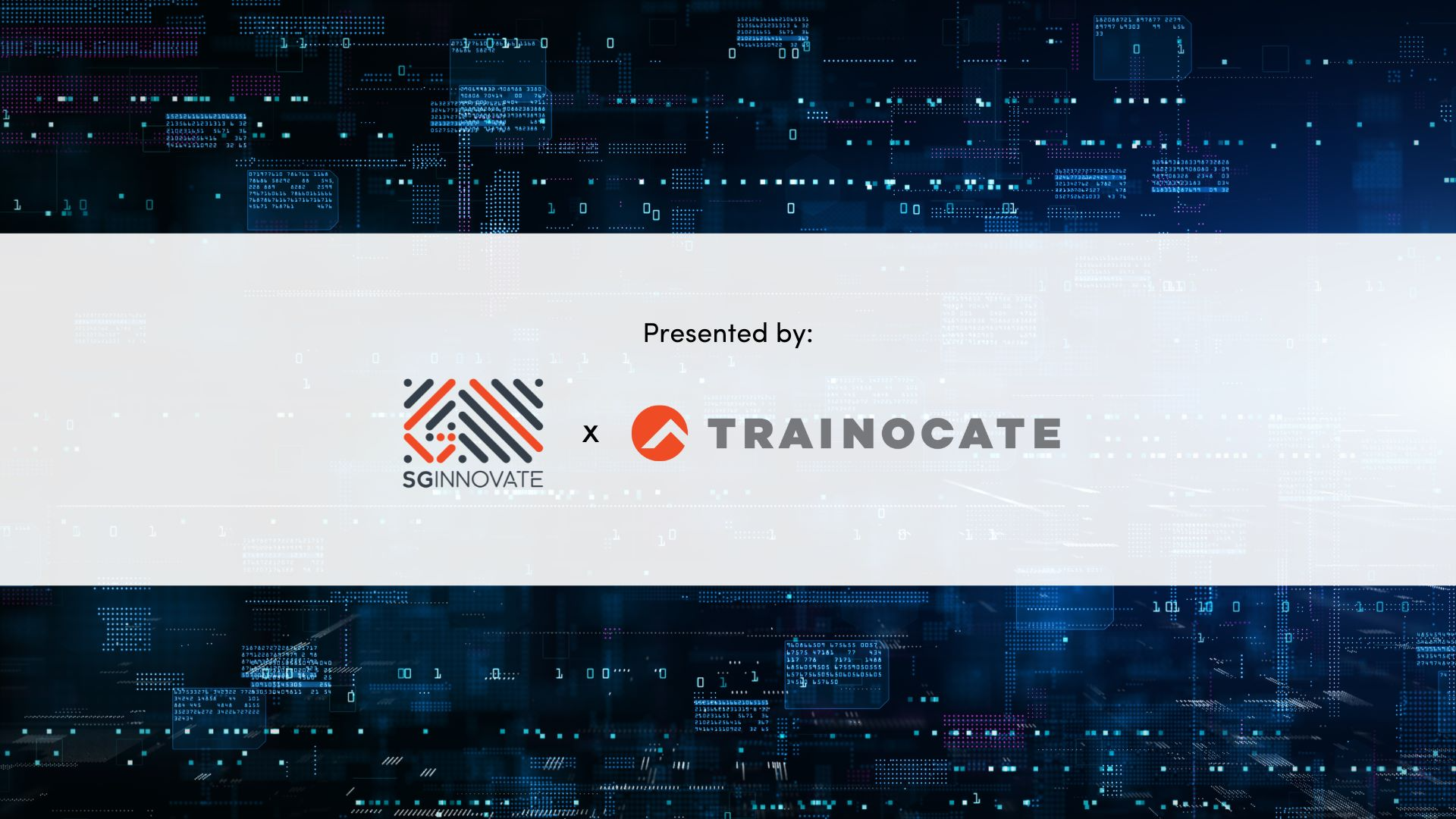Overview
The New Paradigm
The software development landscape is experiencing a paradigm shift driven by generative AI technologies. What we now call "Vibe Coding" has emerged as a methodology that transforms the prototyping phase of software development through AI-assisted code generation, allowing developers to focus on conceptualization rather than implementation details.
What is Vibe Coding?
The concept of Vibe Coding gained prominence when Andrej Karpathy, a leading AI researcher and engineer, demonstrated the remarkable efficiency of using generative AI for rapid prototyping. This approach prioritizes feature ideation and user experience design, leveraging AI to generate initial implementations that can later be refined through traditional engineering processes. The methodology enables unprecedented speed in concept validation while recognizing the crucial distinction between prototyping and production-ready code.
Course Structure
This comprehensive 5-evening program provides a structured approach to mastering Vibe Coding techniques:
Evenings 1-2: Foundational Principles (3.5 hours each) All participants begin with these sessions that establish the theoretical framework and practical fundamentals of AI-assisted code generation. You'll learn to effectively communicate with AI systems, recognize their capabilities and limitations, and develop the judgment to determine when AI-generated code is suitable for various purposes.
Evenings 3-5: Specialized Applications (3.5 hours each) Participants select one of five specialized tracks (strategic leaders attend one evening only):
Engineering Track: For software engineers seeking to integrate AI-assisted prototyping into professional development workflows
Product Management Track: For product managers and designers focused on rapid concept validation and user experience iteration
Domain Expert Track: For subject matter experts who can leverage AI to bridge the gap between domain knowledge and technical implementation
Security & Infrastructure Track: For professionals responsible for ensuring the integrity and resilience of systems incorporating AI-generated code
Strategic Leadership Track: For executives and technical leaders who need to understand organizational implications, talent management, and strategic opportunities presented by AI code generation
Methodological Framework
The Vibe Coding methodology is built upon several core principles:
Concept-First Development: Prioritizing rapid exploration of functionality and user experience
Strategic AI Collaboration: Employing targeted prompting techniques to generate effective prototype code
Accelerated Iteration Cycles: Compressing the feedback loop between concept and implementation
Transition Management: Establishing clear protocols for evolving from AI-generated prototypes to production-ready systems
Risk Mitigation: Implementing appropriate safeguards when incorporating generated code
Program Outcomes
Participants will develop a sophisticated understanding of AI-assisted development alongside practical skills for implementing these techniques within professional contexts. You'll learn to identify appropriate applications for Vibe Coding, establish effective workflows, and manage the transition from rapid prototyping to production engineering.
Target Audience
This program is designed for:
Software engineers seeking to enhance productivity through AI-assisted prototyping
Product managers interested in accelerating concept validation and feature iteration
Domain experts who want to translate specialized knowledge into functional prototypes
Security and infrastructure professionals adapting to the challenges of AI-generated code
Technical leaders responsible for integrating these methodologies into organizational workflows
Executives making strategic decisions about AI adoption and talent acquisition
Professional Relevance
As AI code generation becomes increasingly sophisticated, the ability to effectively leverage these tools while maintaining engineering standards will become a defining professional competency. This course provides the balanced perspective needed to embrace innovation while ensuring the integrity of production systems.
Course Description & Learning Outcomes
Vibe Coding in Production: Learning Outcomes
Core Competencies
Direct AI Systems for Effective Prototyping
Craft precise prompts that generate functional prototype code
Develop critical assessment skills for evaluating AI outputs
Identify optimal use cases for AI assistance in development
Recognize the limitations of AI-generated code in production
Accelerate Development Through AI Collaboration
Generate functional prototypes with significantly reduced time
Execute rapid iteration cycles to refine implementations
Leverage AI to overcome common development bottlenecks
Implement Quality Assurance for Generated Code
Identify potential errors in AI-generated solutions
Develop efficient validation frameworks for AI outputs
Balance validation effort with accelerated development benefits
Manage Prototype-to-Production Transition
Establish criteria for transitioning from prototyping to production
Develop approaches for refactoring AI-generated prototypes
Create efficient handoff protocols between prototype and engineering phases
Lead AI-Augmented Development Teams
Structure workflows incorporating AI-assisted development
Maintain quality standards in hybrid development environments
Establish governance frameworks for AI integration
Track-Specific Outcomes
Engineering Track
Design Prototype-to-Production Architectures
Develop patterns supporting rapid prototyping with clear paths to production
Implement technical guardrails for AI-assisted development
Design approaches for refactoring generated prototypes into robust code
Establish Quality Control for Generated Code
Implement code review strategies tailored to AI-generated solutions
Develop automated testing targeting common AI weaknesses
Integrate AI-generated components with manually engineered systems
Balance Innovation with Engineering Standards
Determine appropriate applications for AI vs. traditional engineering
Develop hybrid workflows combining AI generation with manual development
Articulate technical decisions regarding AI integration
Product Management Track
Implement Rapid Concept Validation
Transform requirements into functional prototypes through AI
Generate multiple implementation approaches to evaluate alternatives
Accelerate user testing through rapid prototyping
Integrate Business Requirements with Technical Implementation
Translate stakeholder requirements directly into testable prototypes
Validate business hypotheses through functional implementations
Bridge the gap between conceptual vision and technical execution
Lead AI-Enhanced Product Development
Restructure product workflows to leverage AI capabilities
Balance accelerated development with appropriate quality controls
Coordinate cross-functional teams in AI-augmented environments
Domain Expert Track
Transform Domain Knowledge into Functional Prototypes
Convert specialized expertise into working software concepts
Generate and test domain-specific solutions independently
Reduce communication barriers in technical implementation
Enhance Technical Collaboration
Present concepts through working code rather than abstract specifications
Develop sufficient technical vocabulary for effective communication
Participate more actively in technical decision-making
Validate Technical Solutions from Domain Perspectives
Identify when implementations misalign with domain requirements
Guide iterative refinement based on domain expertise
Balance domain complexity with technical feasibility
Security & Infrastructure Track
Assess Security Implications of Generated Code
Identify vulnerabilities specific to AI-generated solutions
Implement guardrails for secure AI implementation
Establish security verification protocols for generated code
Design Resilient Infrastructure for AI Applications
Develop environments optimized for AI-generated applications
Create deployment pipelines with enhanced verification
Design architectural patterns that mitigate AI-related risks
Establish Governance for AI-Assisted Development
Implement boundaries for AI integration in critical systems
Create review protocols for AI-generated components
Balance innovation with appropriate risk management
Strategic Leadership Track
Develop AI-Informed Talent Strategies
Assess changing technical skill requirements in AI environments
Create hiring frameworks accounting for AI collaboration capabilities
Identify emerging roles in AI-assisted development
Evaluate Strategic Opportunities
Identify high-value applications within the organization
Develop resource allocation strategies for AI initiatives
Evaluate potential ROI of AI-assisted development methodologies
Manage Organizational Transformation
Navigate cultural changes associated with AI-augmented development
Establish governance structures for AI integration
Balance innovation acceleration with organizational stability
Recommended Prerequisites
Speicalisation skills - software engineering, product design or management, cybersecurity, domain expertise or business leadership.
Schedule
End Date: 30 May 2025, Friday
Temporary dates - to be confirmed later
Location: OnlinePricing
Course fees: Soon to be announced
Skills Covered
PROFICIENCY LEVEL GUIDE
Beginner: Introduce the subject matter without the need to have any prerequisites.
Proficient: Requires learners to have prior knowledge of the subject.
Expert: Involves advanced and more complex understanding of the subject.
- Software Development (Proficiency level: Proficient)
- Software Application Design (Proficiency level: Proficient)
- Product Management (Proficiency level: Proficient)
- Software Engineering (Proficiency level: Proficient)
- Cybersecurity (Proficiency level: Proficient)
Speakers
Trainer's Profile:
Georg Zoeller, Co-Founder, Chief Strategist, Centre for AI Leadership
Georg Zoeller is a former Meta/Facebook/Whatsapp Business Engineering Director with extensive experience in Financial Services, Commerce, Gaming and SAAS. He is also a co-founder of AI Literacy and Transformation Institute, a Singapore based botique AI consultancy and mercenaries.ai, an AI tech startup producing omnitool.ai, an open source platform for AI orchestration. Previously, Georg was a Technical & Creative Director at Ubisoft and Principal Lead Designer at BioWare Corp, contributing to the Assassin’s Creed, Star Wars: The Old Republic, Dragon Age, Mass Effect, Jade Empire and Neverwinter Nights series of games.






